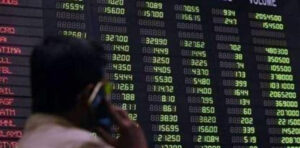KARACHI: External sharia audits are gaining support in Islamic finance as consumers and regulators seek more transparency and accountability, a study has found.
Islamic banks have traditionally used in-house boards of scholars to determine whether religious principles are being obeyed, but this self-policing has often been criticised for leaving banks open to conflicts of interest.
Pressure for more external oversight has been building in several countries that have major Islamic finance industries, and this year Bahrain’s central bank proposed new governance rules that would require Islamic banks there to conduct external sharia audits.
The study, published this week by the Malaysia-based International Shariah Research Academy for Islamic Finance and Britain’s UK Islamic Finance Council (UKIFC), said external sharia audits should become mandatory globally, and that this would help the growth of Islamic finance.
“By providing an additional check, external sharia audit will play an important role towards providing reassurance to scholars, financial institutions and customers,” said Omar Shaikh, advisory board member of the UKIFC, a body which seeks to develop the industry.
The Bahrain-based Accounting and Auditing Organisation for Islamic Financial Institutions (AAOIFI), whose standards are followed in many countries, is deliberating whether to incorporate external sharia audits as a separate item in its rules, the study said.
“If AAOIFI make it part of their standards, then all countries where their standards are mandatory will naturally start implementation,” said Shaikh, adding that support for such external audits had also come from banks in Kuwait.
The central bank of Oman issued specific guidelines for external sharia audits in 2012, and Pakistan’s central bank did so in 2014.
Malaysia, the top Islamic finance market in Asia, does not specify a position on external sharia audits but existing practice by the central bank includes an extensive sharia inspection of all Islamic financial institutions every year.
The study suggested that to help national regulators introduce external sharia audits, the scope of the audits should be made clear, results should be publicly disclosed and there should be conflict resolution mechanisms.



Leave a Comment